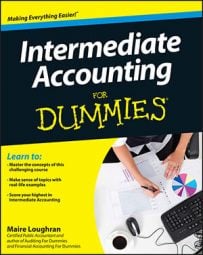For accounting, research expenses are ones the company incurs in the discovery of new knowledge, with the hope that such knowledge will be useful in developing a new product or service. Businesses incur development expenses when applying research results to the design for the new product or service.
You probably think of drug companies when pondering R&D, since the process to develop, test, secure regulatory approval, and bring a drug to market are the classic R&D-related phases. However, R&D costs run rampant through U.S. corporations. Look at the income statement of many publicly held corporations, and you’ll most likely see R&D.
How to identify R&D
This topic may seem to be a no-brainer — and it is, as long as you remember the unique qualities that set R&D apart from other expenses. The major one is that R&D expenses don’t include routine or periodic tweaking to existing services or products.
To qualify as research expense, the cost happens while seeking new knowledge — that is, where the outcome isn’t certain. For example, a drug company may think that a certain combination of chemicals will cure the common cold, but until testing is complete, the outcome remains uncertain.
Development costs include those related to the design of new products or processes. A good example is the fabrication of a prototype, which is a mockup of an actual product to see if it works as expected.
How to value R&D
Getting R&D on the books is pretty simple — companies have to expense all research and development at cost. Still, you need to be on the lookout for two special circumstances:
If the company reckons that it can reuse material or PP&E for another R&D or non-R&D project in the future, those specific costs should be capitalized.
Purchased intangible assets that a company uses for R&D go on the books at fair value, not cost.
Differing from GAAP, International Financial Reporting Standards (IFRS) require that some development costs be capitalized rather than expensed.

